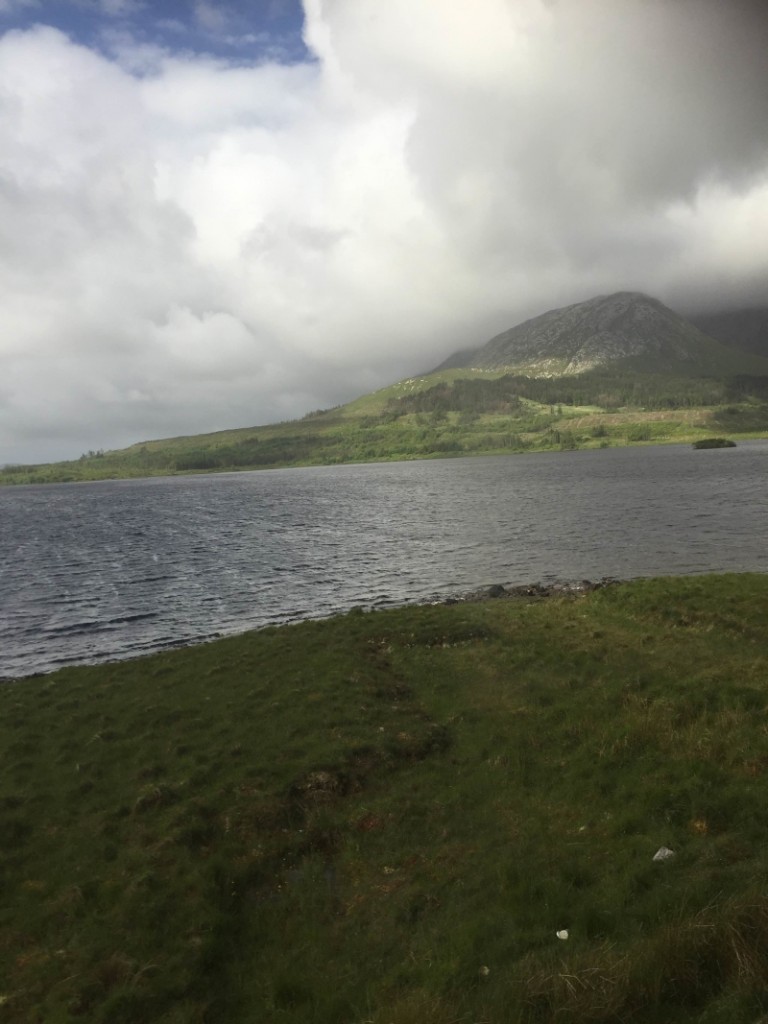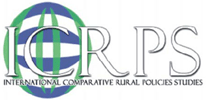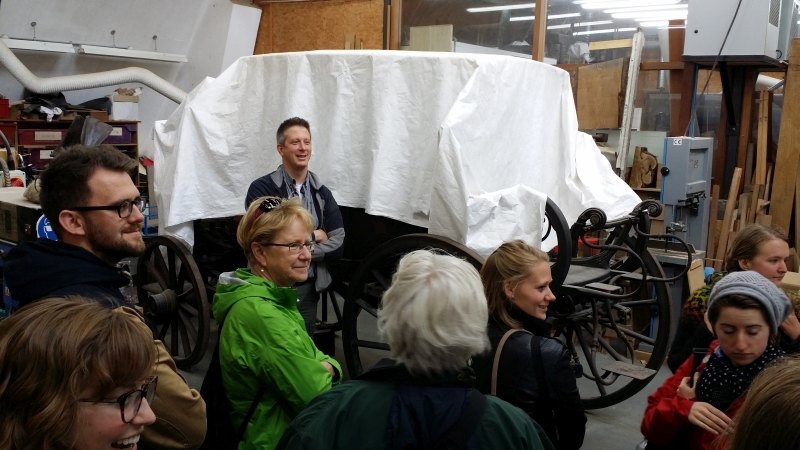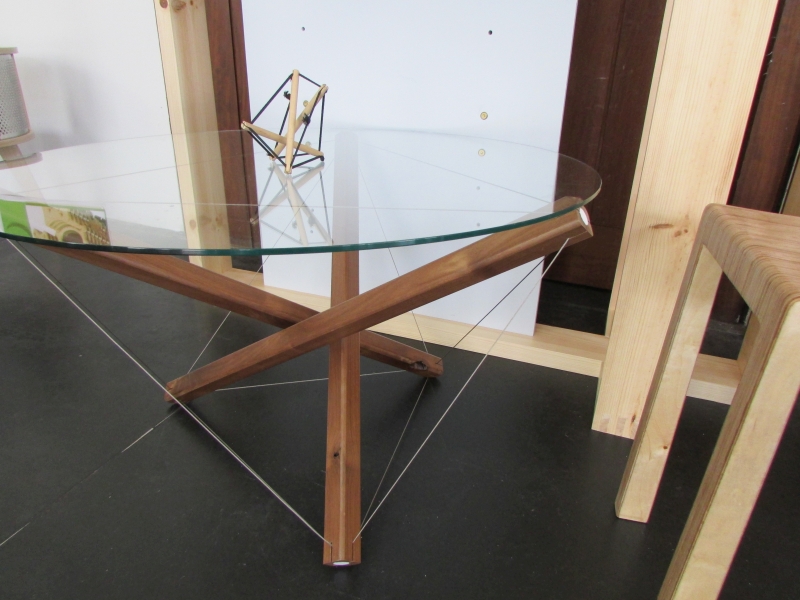By: Scott Brown, Lisa Groshong, Maliq Kendricks and Julie Welch
Connemara – West Ireland On Friday, June 26th, 2015, we took a venture to the village of Letterfrack in Connemara, County Galway, Ireland. As we drove to our destination, we were more than intrigued by the amazing scenery bestowed upon us by Mother Nature. Views of the clear skies, beautiful mountains, and blue waters from the Atlantic Ocean had the entire cohort of ICRPS students in awe. While riding on the bus, we were able to see cows, sheep, and even some horses, all of which were grazing the green grasses of the landscape. It was truly an experience for us all to be exposed to the land that had been carved by glaciers thousands of years ago!
On Friday, June 26th, 2015, we took a venture to the village of Letterfrack in Connemara, County Galway, Ireland. As we drove to our destination, we were more than intrigued by the amazing scenery bestowed upon us by Mother Nature. Views of the clear skies, beautiful mountains, and blue waters from the Atlantic Ocean had the entire cohort of ICRPS students in awe. While riding on the bus, we were able to see cows, sheep, and even some horses, all of which were grazing the green grasses of the landscape. It was truly an experience for us all to be exposed to the land that had been carved by glaciers thousands of years ago!
Upon arrival to Letterfrack, we were warmly greeted by Kevin Heanue of Connemara West and TEAGASC. Kevin is an economist specializing in innovation and technological change. We joined him in a lecture theatre where he led a talk and discussion surrounding Connemara West, a community owned regional development centre. The Connemara West region is bounded on three sides by the Atlantic and home to approximately 2000 people. Being a remote community with a population density of 11 people per square kilometer, it faces many of the rural issues we have been discussing at this summer institute. Kevin told us the ‘story’ of Connemara West, which helped us understand its history and the impacts of the community-driven efforts.
https://www.facebook.com/pages/Connemara-West-Plc/519903121429602
Initially, Connemara West developed in order to meet infrastructural needs. Starting with a football pitch in 1971 and followed by the development of 9 cottages (as a source of finance for Letterfrack), it is evident that Connemara West’s success has only grown. (Now influenced by over 160 active community/sporting/social groups!) Kevin described the benefits and challenges associated with having a self-funded institute. On one hand, C.W has a high sense of flexibility since it is not program based. However, he pointed out that a lack of program-based design might lead to “drift.” The central program Kevin addressed was the education-based tourism developed by C.W. They have developed the capacity to host semesters abroad for four US colleges: Aquinas College, Lourdes University, Maine Maritime U and Kirkwood College. He emphasized that their facilities and community were able to provide a small, safe community that students from rural areas are able to quickly integrate into. He even mentioned that this program had resulted in about 6 marriages!
Following Kevin’s discussion, we heard from Joe Conaty who works with FORUM, a local, program-based initiative that seeks to develop a “sustainable Connemara based on the community, cultural and environmental richness and resources of the area through partnership, cooperation, innovation and effective delivery of the programs it manages” (FORUM, 2015). FORUM is a Local Action Group (LAG) that has funded several programs/projects through the EU’s LEADER program using a Community Led Local Development approach. A point of interest that was brought up by faculty and students throughout the day was the impact of the changing policy environment in Connemara and elsewhere in Ireland. For example, Connemara is experiencing challenges as they must now compete for LEADER funding as Local Authorities also want to leverage LEADER resources. Joe reiterated that many residents feel they do not have to “fix something that isn’t broken.” At ICRPS, we have been discussing how Ireland’s Local Government is experiencing a reduction in powers (i.e. Water now controlled at the National level). Joe agreed that Connemara’s local authorities may be trying to “reenergize” their powers by attempting to gain control over LEADER resources. John Bryden provided an interesting response by posing a question: What does happen when you give money to non-elected people? Is it really unfair for local authorities to strengthen their voice in a community? Certainly some food for thought.
The second part of the day was comprised of three ‘mini-tours’ around the Connemara West Campus in Letterfrack:
First, we spoke with Sven Habermann at Conservation Letterfrack who gave us a brief look at some of the conservation/restoration efforts taking place on campus. We were able to take a look inside their shop and ask some questions about their services. Some notable current projects included: 1) a wooden plane propeller from World War 1 in the process of being stabilized before finding a home in a National Museum, and 2) a carriage from the late 19th century which carried the Lord Chancellor and later, the Lord Mayor of Dublin. http://www.conservationletterfrack.ie/index.html
Second, we met with Janet O’Toole who spoke to us about Connemara Community Radio, which has been proudly broadcasting (legally!) for 20 years. A few of us purchased their compact disk (Come by the Hills: The West Wind Blows), which features a variety of local music and poetry. http://www.connemarafm.com/
Third, we were able to visit GMIT Letterfrack and see their Dovetail Exhibition. GMIT offers degrees in Furniture Design and Manufacture as well as Furniture and Wood Technology, and we were very impressed with the student work that was being showcased. We especially liked the wooden bow ties and the wooden book bag! https://twitter.com/IDIIreland/status/611193711423307776
GMIT Furniture Design
More than half of the participants took advantage of the beautiful afternoon to visit Connemara National Park, one of Ireland’s 6 national parks. Led by an informative guide, we learned about flowering heathers, bug-eating plants, and sphagnum mosses along with some geology and the famous Connemara wild ponies. Our guide told us about historical land use whereby the area was divided into good and bad areas by long stone fences. More recently, efforts to save the bog have included improving all of the park’s trails with gravel and plank walkways. As a result, the park has experienced a surge in visitors that is creating its own issues with overuse. Park management is currently searching for ways to manage this. In addition, they struggle with illegal sheep grazing that threatens the park’s delicate ecosystem.
To wrap up the day we were able to chat with 3 business folks from the Connemara region. We were grateful that they were able to share their stories of both success and challenges and took away many valuable lessons that link back to several of the modules we’ve had on campus. Our ‘debriefing’ was held across the road at a wonderful pub where we were able to sit back and enjoy some local seafood and traditional Irish music.




